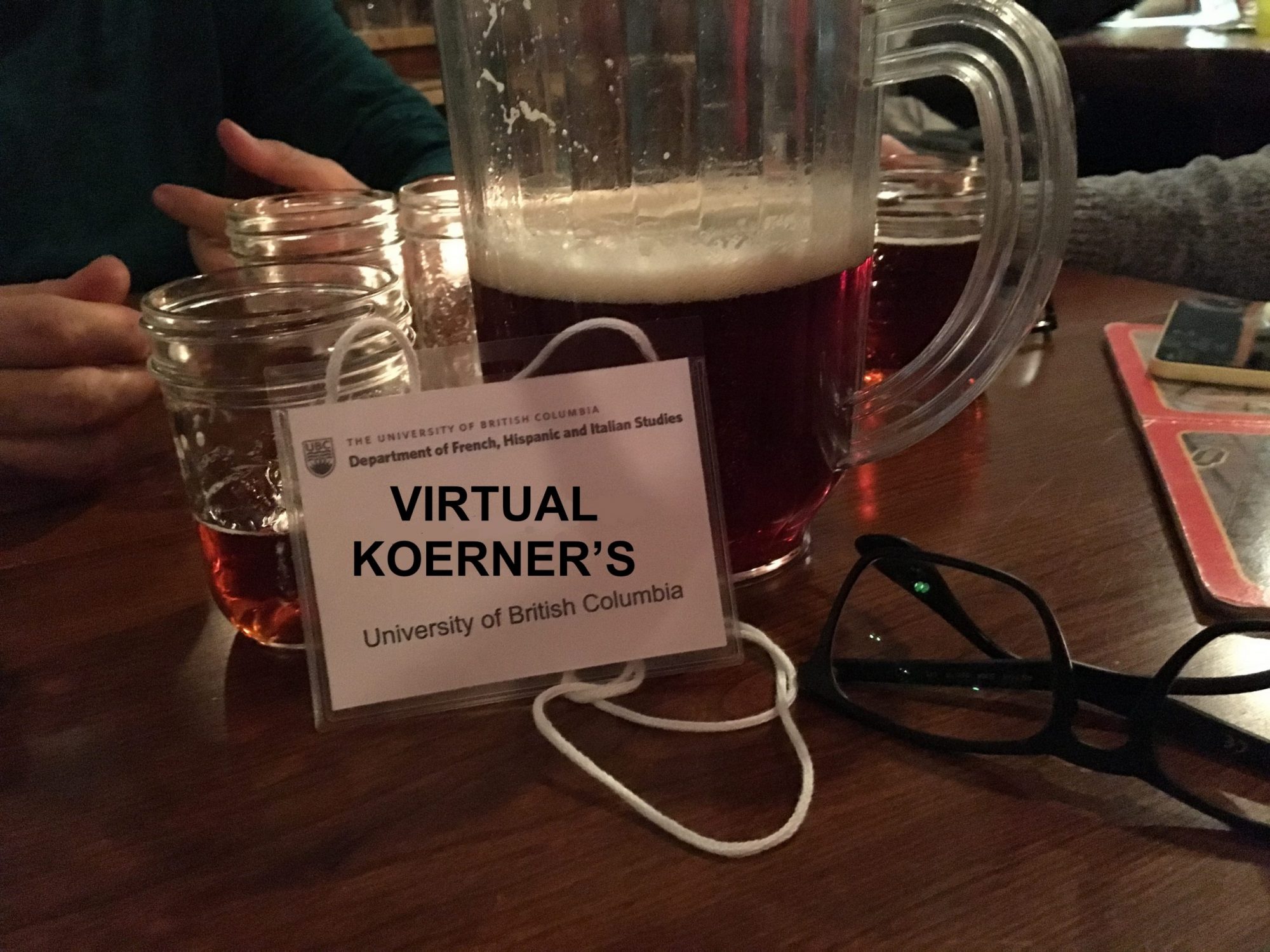 First, I must apologize for how late this post is. I was out of town last week, and more distracted than I anticipated. (Yes, within British Columbia we can travel! Even if we can never again leave this beautiful province…)
First, I must apologize for how late this post is. I was out of town last week, and more distracted than I anticipated. (Yes, within British Columbia we can travel! Even if we can never again leave this beautiful province…)
In any case, apologies again that I am sending this week’s reading with so little anticipation. I think you’ll find, however, that the reading is not too taxing, and certainly well worth our while.
Before that, I’d like once again to thank Ana Vivaldi for organizing the current cycle of readings, leading up to our conversation with Diego Sztulwark. We had a good discussion last week about Fogwill and Siete cajas (and for those who have not yet managed to see the movie, I especially recommend it). There were fewer of us than in recent weeks, but the discussion was no less lively for all that. Both texts are key, I think, to understanding not only neoliberalism but also (as we said) the possibility of a “neoliberalism from below.”
Ricardo posted on the blog some afterthoughts from our discussion, which I highly recommend to you: “Una breve historia de enredos entre el dinero y la mercancía”. In his words:
“En el caos del mercado parece siempre sugerente la emergencia de una práctica o de un sujeto que contenga ese caos, que quizá evite el enredo constituyente de la narración (pero tal vez, sin ese enredo, no haya narración).”
This week the texts proposed are both from Colectivo Situaciones, the collective with with Sztulwark was associated for many years. To my mind, quite frankly, Situaciones produced some of the most important reflections on politics and theory from Latin America of the past 25 years. Indeed, I’d go so far as to say that they are among the few indispensable thinkers from the region in that time. (Perhaps we can talk about why that may be so…)
Ana has proposed two texts for us, both about what we might call “methodology,” which Situaciones saw in terms of “militant research.”
(If you want my 2c., this might be usefully contrasted with the interest, over this same period, in “decolonial” methodologies… Again, this might be the beginning of our discussion?)
One is longer than the other: read either or both for the “intellectual” part of our meeting.
- “Algo más sobre la Militancia de Investigación Notas al pié sobre procedimientos e (in)decisiones” (2004)
- “Romanticismo. En respuesta a los sociólogos ‘realistas’” (2009)
Both these texts are found on the “Lobo suelto” blog, which is well worth reading in general.
You may well also want to take a look at the earlier (2002), perhaps foundational, text by Situaciones on the same topic: “On Method”.
We will meet tomorrow (I know, apologies again), on Wednesday, July 15, from 4pm Pacific.
As always, however, feel free to join us later in the evening (from around 5:30pm onwards), without any expectation of having read the texts, for a more social check in.
Also as always, please do feel free to invite others (whether they are in Vancouver or not) to join us. Virtual Koerner’s is fully in Phase Four of lockdown, and we are delighted to see our “bubble” continuing to expand. If anyone wants to be added to the list, they can be in touch with me.
And again, we very much welcome and invite suggestions of texts, speakers, discussion topics, and so on. We especially welcome a) texts written by VK participants (short texts can be posted to our blog, https://blogs.ubc.ca/virtualkoerners/category/blog/), and b) suggestions for linked “cycles” of sessions that might, like Ana’s current cycle, include different kinds of texts on a common theme.
We look forward to seeing you tomorrow.

 We now move on to a new cycle of sessions, which will culminate in a visit from Argentine political theorist Diego Sztulwark on July 29. This series is organized by Ana Vivaldi, who has invited Sztulwark and suggested the preparatory readings.
We now move on to a new cycle of sessions, which will culminate in a visit from Argentine political theorist Diego Sztulwark on July 29. This series is organized by Ana Vivaldi, who has invited Sztulwark and suggested the preparatory readings.